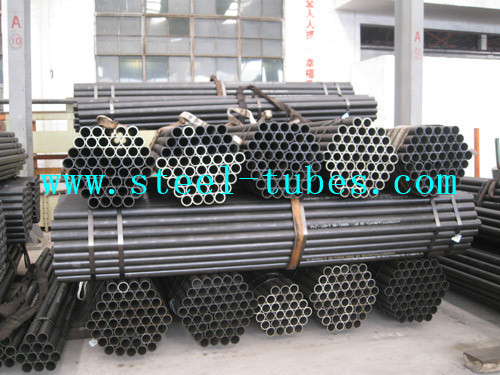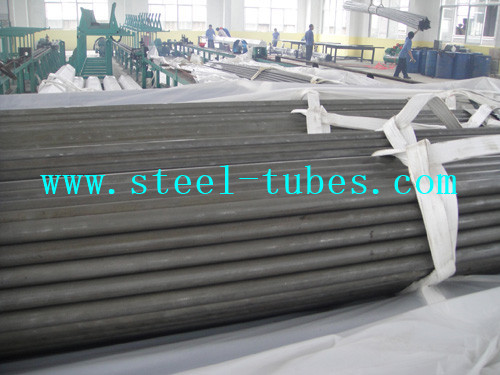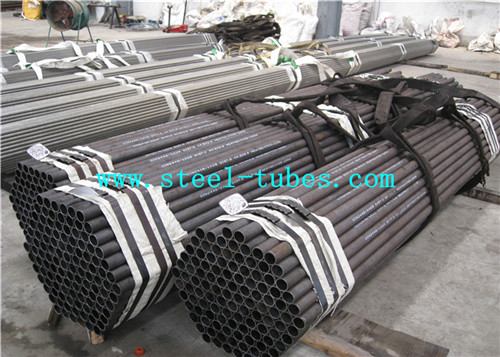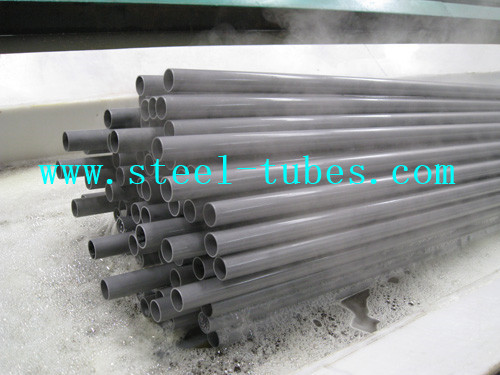Stronger Car Road to Crossroads to Support Key Brands
China has become the world's largest auto market, and it has enjoyed a prominent status. It is highly sought after by foreign auto giants. The Chinese auto industry has intentionally or unconsciously played down the goal of making China a powerful automobile country. Some people think that China does not need to be a powerful automobile country, and some people are confusing the concept of a big country and a powerful country. It is amidst hustle and bustle that it is believed that it is not far from a big country that a large automobile country is. However, the reality is extremely cold. Most experts at the Gasgoo Institute believe that behind the buzzing of the market, China is faced with the cruel reality of “walking on the road to a powerful automobile country.†Now, regardless of the policy environment, The commercial competition environment and the consumer environment have increasingly constrained the development of China's own-brand car companies. China is at a crossroads whether it can truly move toward a car power.
So, does China necessarily have to become a car power? What is the sign of a car power? From the current plight of the own-brand car enterprises, how should they become a car power? Focusing on these topics, Gasgoo.com, in conjunction with the "First Financial Daily", launched a series of surveys on "The Dream of the Auto Power" to gather industry voices for the development goals and path choices of the Chinese auto industry.
.jpg)
In Series 1, "the market is getting bigger and bigger, but the dream of China's auto power has gradually drifted away? In the survey (from February 5 to February 10, the number of participants was 3126), we found that the vast majority of the results of many survey questions had very obvious tendencies. The views on many issues appeared to have been reached in the industry. Basic consensus. In conjunction with interviews with offline experts, these questions will be elaborated below.
In the opinion of the vast majority of people in the industry, becoming a powerful automobile country is, of course, one of China’s development goals. This can be clearly seen from the results of our survey1. 82% of the participants are on the side of the automobile's strong nationalism, but there are also 11% of opposing views, that is, China does not necessarily need to become a car power. Another 5% of people chose not to speak.
In fact, it is necessary to discuss another issue before answering this question. Why does China need to become a car power? Different interest groups may have different answers to this question. Through interviews with the Gasgoo Institute of Expert Advisors, the proponents have three main reasons: 1. According to the national competitive strategy theory, if any country can become an economic power, it must form a group of industries with global competitiveness in the economy. Globalization is particularly important today. The automotive industry, as the backbone of the industry, is valued by almost all industrialized countries because of its large-scale industry and strong correlation with other related industries. The U.S., Japan, Germany, France, and Italy that are powerful economic powers in the West are not car power countries. The United States has not forgotten to assist the auto industry in the financial crisis. This fully shows that for an industrialized country, becoming a car power is a manufacturing power. It is even an integral part of economic power. At that time, abandoning the automotive industry and letting Britain's manufacturing industry go west on the west hill is now suffering from the economic downturn for many years, and the bitter consequences of this inconsistent with Germany and France. 2. China is in a critical period of upgrading its industrial structure. Over the past 30 years, China's economy has developed rapidly. Many industries in China have already possessed very high international competitiveness. China's manufacturing industry is globally known. However, China's manufacturing is not based on high value-added technologies and other technologies that are difficult for other countries to achieve. The main reason is the cost advantage created by the demographic dividend, that is, the labor-intensive industrial clusters of a large number of SMEs. However, as China’s demographic dividend gradually disappears, this model will be difficult to sustain in the long term. China needs to develop a number of industries with higher technology and added value to support sustainable economic growth. The automobile industry is undoubtedly the first choice. 3. Although the level of traditional vehicle development is lagging behind that of developed countries, China has a huge domestic market. If the Chinese government supports it properly, it will have the opportunity to nurture more than two independent Chinese auto enterprises with international competitiveness. Powerful countries have superior natural conditions.
.jpg)
The previous article mentioned that China's auto industry is strong in production and sales. Does this mean that China's auto industry is already very strong? The vote on this issue is very clear. Almost all participants (90%) chose "No". The sign of the strength of a country’s automobile industry can be clearly understood from international experience. The so-called “powerful country of the automobile†refers to the auto industry in the country’s auto industry as a representative with independent intellectual property rights and has enough in the international market. Competitiveness. For example, Germany, Japan, and the United States, auto companies in these countries have independent property rights in terms of quality, technology, service, and brand, and their international competitiveness is very strong, so they are known as automobile powerhouses. On the other hand, in China, although China's auto production and sales scale has reached the world's No. 1 level, the market is basically monopolized by foreign brands (brand equity and intellectual property rights of joint venture companies are purchased from foreign parties), especially in the high-end areas. The independent brand's right to speak is minimal. According to the data released by the China Automobile Association, the independent brands accounted for only 29.11% of the total sales of cars in 2011, which is the most directly reflecting the level of residents' consumption. The remaining shares were all divided by foreign brands. Since the models of self-owned brands are almost all distributed in the low-end market, the proportion of self-owned brands will be even more unfavorable if viewed in terms of market profits. Moreover, the share of self-owned brands has shown a downward trend since the second half of 2010, which can not help but worry about the fate of independent brands in the future.
.jpg)
In the survey question on whether “the self-owned brand car enterprise with international competitiveness is a necessary condition for a strong automobile countryâ€, we have also obtained very consistent results. 91% of participants chose "yes".
Different from the understanding of the automotive industry, many consumers or experts in other fields have unclear understanding of this internal link between the automobile powers and auto brands. Some people think that as long as cars are produced in China, whether they are self-owned brands or foreign capital, they are all paying taxes and arranging employment. They even think that emphasizing an independent brand is a manifestation of a nationalistic complex. In fact, it not only confuses the concept, but also ideally understands the complexity and cruelty of economic complementary competition between countries.
The concept of confusion confuses the fact that supporting the development of independent brands and supporting foreign capital in free competition in the Chinese market are not contradictory. The automobile industry is a highly globalized industry. Competing relationships exist between different automobile powers. Whether it is the United States, Germany, France, etc., foreign OEMs have a very high market share in their markets. But at the same time, it must be noted that the auto brands of these countries also have a significant share in their home countries and other major markets. These auto-competitive automobile enterprises have all obtained a large amount of profits from their markets around the world, and they have reserved a large number of patented technologies in the industry and related industries, which has boosted the global competitiveness of the entire industry. Therefore, there is no objection to the development and competition of foreign investment in the Chinese market. What needs to be called for is that China needs to take a place in the globally complementary automotive industry and use its huge natural advantages to build its own automobile industry competitiveness.
This is an idealized understanding because the auto industry is the most globalized industry and the competition is fierce. While accepting free market competition, industrial powers have spared no effort to support their country’s auto industry to have greater competitive advantages. Especially the rising auto industry powerhouse, whether it is Japan or South Korea, is a clear example. It is basically wishful thinking that car companies in other countries will help China improve the competitiveness of the auto industry. This is determined by the competitive nature of the countries that have a strong car country. Whether it is the use of a joint venture market for technology, or the implementation of joint ventures as part of its own brand, it is self-deceptive.
In China, there is a pressing need for the community to reach a consensus on the need to support and nurture several self-owned car companies with international competitiveness in the development of China into a powerful automobile country.
.jpg)
In the past two years, the market share of self-owned brand auto companies has been declining. The reason behind this is that the technology, quality, performance and service that support brand power are far away from foreign brands. This has led to independent brands have been in the middle and low-end market, unable to achieve an upward breakthrough. When faced with the weakening of consumer demand in the market, independent brands are even more strenuous. Whether the crisis faced by the self-owned brand is the beginning of the destruction of the dream of a strong automobile country, about half of the participants (48%) chose positive answers in the survey on this issue, and 29% of people believe that this cannot explain It is the beginning of the car's dream of becoming a strong country. In addition, 23% of people chose not to speak.
In fact, the current crisis in China's own brands has its own reasons for development, but there are also many external factors. The most discussed at present is the lack of necessary protection and support for independent brands. China's autonomous auto industry started late, but the market is relatively open earlier. A large number of international auto companies have flooded into the Chinese market, which has put tremendous pressure on the survival of Chinese auto companies. Although the Chinese government originally intended to set joint venture restrictions, it actually caused the joint ventures between foreign giants and large state-owned enterprises with all kinds of important resources, and it has increasingly become a deterrent factor in the development of independent brands.
From a worldwide perspective, the development of strong automotive industry countries such as Germany, Japan, and the United States is inextricably linked with the support of the government. This point has also been recognized by the majority of people in the industry in our survey questions, and the voting proportion is as high as 87%. However, the methods of support vary from country to country.
.jpg)
For example, for Germany, although the German government has never explicitly supported the German automobile industry with any explicit plans and policies for the automobile industry, it has provided appropriate guidance during the critical period of the development of the automobile industry, and provided assistance when the automobile industry needs help. Helping to make the German automobile industry develop healthily. For example, in the 1930s, the number of cars in the United States had reached 17.5 million at the time, compared with only 171,000 in Germany, and the annual output was nearly 60,000. In order to vigorously develop the auto industry, the German government announced that it has reduced and eliminated the automobile consumption tax that has plagued the development of automobiles. This has led to a significant reduction in the cost of car purchases for the people and the government’s fiscal revenue has also increased due to the increase in car consumption. At the same time, in 1934, the German government introduced various policies to encourage and promote the development of economical cars in order to accelerate the development of cars to the general public. At the same time, the government has actively strengthened the construction of the road network and provided a good objective environment for the development of the German automobile industry. In 1955, Germany’s automobile output ranked second in the world, second only to the United States.
The start-up phase of the development of the automobile industry in Japan has been accompanied by industrial protection policies. This is in contrast to Germany’s free and open guidelines. In the early post-World War II period, Nissan, Toyota, and Isuzu all suffered huge debts because of the war. Without government support, it has been difficult to sustain. The faction that is represented by the Japanese Ministry of National Economy and Production believes that the revitalization of the auto industry will lead to the development of a series of economic sectors, especially the economy, machinery, and iron and steel industries, and must be protected with special emphasis. The government began to encourage domestic enterprises to import and manufacture foreign brands through the cooperation with foreign companies, and to accelerate the acquisition of technology. However, only technical cooperation is allowed and foreign investment is not allowed. Japan’s restrictions on imports are also very strict. It imposes a tariff of up to 40% on imported cars and was not repealed until 1978.
Through the comparative analysis of the above cases, we have more clearly understood how the government and society support independent brands should be based on the country's situation. For China in the next series of adjustments, we will discuss in depth.
.jpg)
In the last survey on whether or not the parties were supporting the key timing for the development of independent brands, we got more consistent results. In the large auto market in China with nearly 20 million vehicles, no automaker has sold more than 1 million vehicles worldwide. Therefore, in the case that most of the global automotive market has entered a mature period, Chinese automakers will have this The scale cannot yet be said to have the ability to survive globally, let alone to be globally competitive. In the next five years, when China’s own domestic market enters a mature period, if the independent brand car companies still do not have the ability to survive globally, it basically means that China has achieved a complete destruction of the dream of a powerful automobile country. Therefore, the overwhelming majority (81%) of the industry believe that it is no time to support independent brands.
Seamless Boiler Steel Tubes are produced by Cold Drawn Seamless or Welded Processing,
with steel grade of Low Carbon Steel, Medium Carbon Steel, Alloy Steel etc.
Technical Standards as
ASTM A179, ASTM A192, ASTM A178, ASTM A210, ASTM A213, ASTM A334, ASTM A335 etc
DIN17175, EN10216-2, GB/T 5310, BS3059, etc.
Steel Grade:
Carbon Steel Grade:
ST35.8, ST37.0, ST44, ST52;
E155, E195, E215, E235, E275, E355;
195GH, P235GH, P265GH, P195TR1, P195TR2, P235TR1, P235TR2, P265TR1, P265TR2;
SAE1010, SAE1020, SAE1026, SAE1035, SAE1045;
Carbon Steel Tube: SA178, A179, A192, A210, SA213, SA214, etc.
Alloy Steel Grade:
T2, T5, T9, T11, T12, T17, T21, T22, T91,T92, 15Mo3,16Mo3, 13CrMo44;
SAE4130, SAE4140, 40Cr, 40Cr4, 10CrMo910, 12CrMo910, 11CrMo910,
25CrMo4, 35CrMo, 35CrMo4, 42CrMo4, 34CrMo4, 20MnV, 20MnV6,20CrMn,12Cr1MoVG;




Boiler Tube,Steel Boiler Tube,Seamless Boiler Tube,Stainless Boiler Tube
TORICH INTERNATIONAL LIMITED , https://www.steeltubepipechina.com